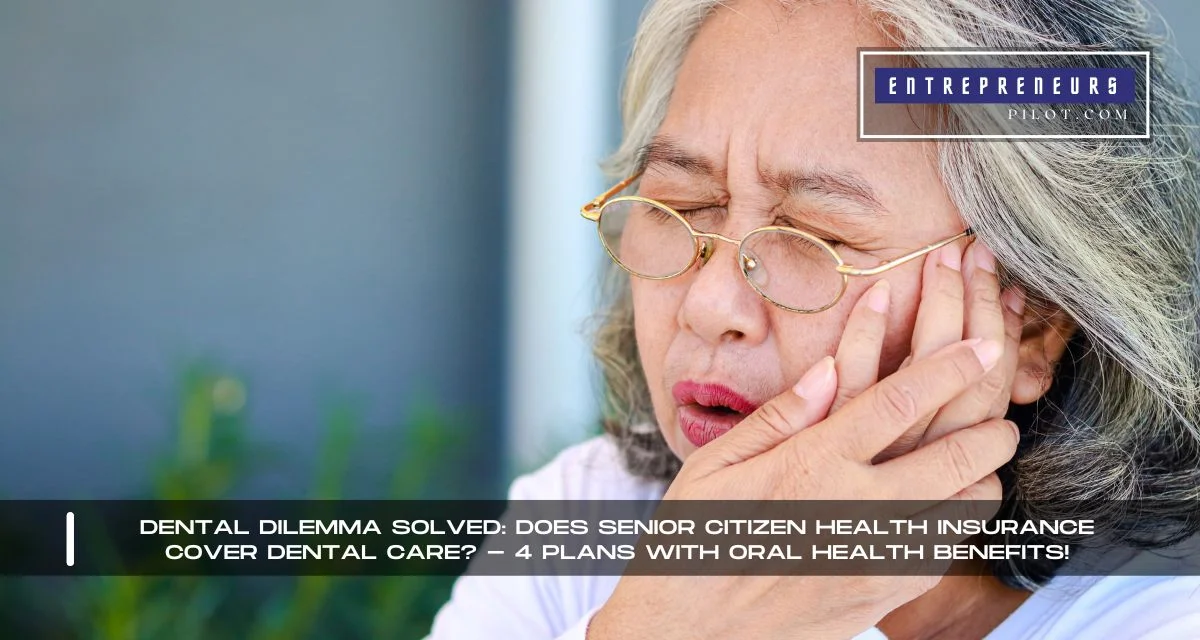Introduction
Navigating the maze of health insurance can be daunting, especially for seniors who prioritize dental health as a part of their overall well-being. The question, “Does Senior Citizen Health Insurance Cover Dental Care?” is more relevant today than ever. With the rising cost of dental procedures, understanding the extent to which health insurance supports oral health is crucial. This blog post unravels the dental dilemma, shedding light on four plans that offer oral health benefits, ensuring seniors can smile with confidence and without financial worry.
Table of Contents
As we age, our dental needs become more intricate, often requiring consistent and specialized care. Unfortunately, many seniors find themselves pondering whether their health insurance extends to the realm of dental services—a vital aspect of overall health that can significantly impact quality of life. The importance of dental care cannot be overstated, with research linking oral health to systemic conditions such as heart disease, diabetes, and stroke. Thus, the intersection of dental care and health insurance for seniors is not just a matter of convenience but a crucial aspect of comprehensive healthcare.
Does Senior Citizen Health Insurance Cover Dental Care?
For many seniors, the answer to this question can be a complex web of yes, no, and maybe, largely depending on the type of insurance plan they hold. Traditional Medicare, for instance, does not cover most dental care, dental procedures, or supplies like cleanings, fillings, tooth extractions, dentures, dental plates, or other dental devices. This gap in coverage has led to the emergence of supplementary insurance plans and Advantage plans that include dental benefits as part of their offerings.
- For Expert Financial Insights And Guidance, You Can Visit Our Sister Site – ArabsGeek.com Now!
- Curiosity Piqued? Dive Into the Most Captivating Financial Content by Visiting Our Homepage!
- Unlock Exclusive Business Opportunities! 🚀 Connect with Us Now at our Email: [email protected]!
4 Plans with Oral Health Benefits
1. Medicare Advantage Plans (Part C)
Medicare Advantage Plans, or Part C, are an all-in-one alternative to Original Medicare. These plans are offered by private insurance companies approved by Medicare and often include benefits beyond what Original Medicare provides, including dental care. Depending on the plan, seniors might have access to a range of dental services, from routine cleanings and X-rays to more extensive procedures like extractions and dentures.
2. Standalone Dental Insurance
For those looking for more comprehensive dental coverage, standalone dental insurance plans can be a viable solution. These plans are specifically designed to cover dental care and often offer various levels of coverage, from basic preventive care to more advanced treatments. Seniors can select a plan that best fits their dental care needs and budget, ensuring they have access to necessary dental services without significant out-of-pocket expenses.
3. Dental Discount Plans
An alternative to traditional insurance, dental discount plans provide members with access to a network of dentists who have agreed to offer reduced rates to plan members. While these plans are not insurance per se, they can provide significant savings on everything from cleanings and fillings to more complex procedures. These plans are often more affordable than traditional dental insurance and can be a good option for seniors looking to save on dental care.
4. Medicaid
In some states, Medicaid offers dental benefits to seniors. These benefits can vary significantly from state to state, with some offering comprehensive dental coverage and others providing limited or emergency-only services. Seniors eligible for Medicaid should check with their state’s program to understand the extent of dental coverage available to them.
The Importance of Dental Care in Senior Health
Oral health is a critical component of overall health, especially for seniors. Poor dental health can lead to pain, difficulty eating, and even systemic infections. Moreover, conditions like gum disease have been linked to heart disease and diabetes, highlighting the importance of maintaining oral health for preventing more serious health issues.
Conclusion
Understanding the intersection of senior citizen health insurance and dental care is key to accessing necessary dental services without undue financial burden. While traditional Medicare may offer limited dental coverage, Medicare Advantage Plans, standalone dental insurance, dental discount plans, and, in some cases, Medicaid provide pathways to comprehensive dental care for seniors. By exploring these options, seniors can ensure they maintain not only their oral health but their overall well-being.
Frequently Asked Questions
01. Why doesn’t traditional Medicare cover dental care?
Traditional Medicare is primarily focused on medical care and does not cover routine dental care or most dental procedures because they are considered part of everyday personal health maintenance.
02. Can I switch from traditional Medicare to a Medicare Advantage Plan if I want dental coverage?
Yes, during the Medicare Open Enrollment period, you can switch from traditional Medicare to a Medicare Advantage Plan that includes dental coverage.
03. How do dental discount plans differ from dental insurance?
Dental discount plans are not insurance but offer reduced rates on dental services at participating dentists. Unlike insurance, there’s no coverage or reimbursement, but members pay a discounted rate directly to the dentist.
04. Are there any dental services that are more commonly covered by insurance for seniors?
Most dental plans for seniors focus on preventive care, such as cleanings, exams, and X-rays, as these are crucial for maintaining oral health and preventing more costly procedures down the line.
05. How can I find out if my state’s Medicaid program offers dental benefits for seniors?
Contact your state’s Medicaid office directly or visit their website for the most accurate and up-to-date information on dental coverage for seniors.











